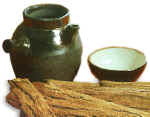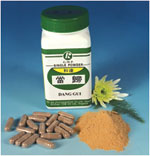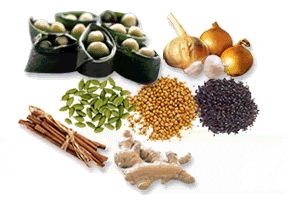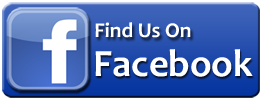|
Chinese Herbal Medicine
The Dominant
TCM Intervention in
China
Herbal medicine is by far the oldest and most richly foliated
branch on the tree of Chinese health and healing.
More than three hundred herbs that are commonly used today have
a history of use that goes back at least 2,000 years. Over that
time, a vast amount of experience has been gained that has gone
towards perfecting their clinical applications. According to
Chinese clinical studies, these herbs, and others that have been
added to the list of useful items over the centuries, can
greatly increase the effectiveness of modern drug treatments,
reduce their side-effects, and sometimes replace them
completely.
In China, the two most common methods of applying herb therapies
 are to make a decoction (a strong tea that must be simmered for
about an hour or more) and to make large honey-bound pills. Both
of these forms meet with considerable resistance in Western
countries. The teas are deemed too time-consuming, smelly, and
awful-tasting to justify their use, and the honey pills
(boluses) are sticky, difficult to chew, and bad tasting. Thus,
modern forms that are more acceptable have been developed for
most applications. are to make a decoction (a strong tea that must be simmered for
about an hour or more) and to make large honey-bound pills. Both
of these forms meet with considerable resistance in Western
countries. The teas are deemed too time-consuming, smelly, and
awful-tasting to justify their use, and the honey pills
(boluses) are sticky, difficult to chew, and bad tasting. Thus,
modern forms that are more acceptable have been developed for
most applications.
 The two popular forms to replace the standard Chinese
preparations are extract powders (or granules) and smooth, easy-to-swallow tablets or capsules. The extracts are made by
producing a large batch of tea and then removing the water and
producing a powder or tiny pellets; the resulting material is
swallowed down with some water or mixed with hot water to make a
tea. Tablets and capsules contain either powdered herbs or dried
extracts or a combination of the two. Despite the convenience,
one must take a substantial quantity of these prepared forms
(compared to the amount of drugs one takes). For example, doses
of the dried extracts range from 1-2 teaspoons each time, two to
three times per day, and the tablets or capsules range from
about 3-8 units each time, two to three times per day. The two popular forms to replace the standard Chinese
preparations are extract powders (or granules) and smooth, easy-to-swallow tablets or capsules. The extracts are made by
producing a large batch of tea and then removing the water and
producing a powder or tiny pellets; the resulting material is
swallowed down with some water or mixed with hot water to make a
tea. Tablets and capsules contain either powdered herbs or dried
extracts or a combination of the two. Despite the convenience,
one must take a substantial quantity of these prepared forms
(compared to the amount of drugs one takes). For example, doses
of the dried extracts range from 1-2 teaspoons each time, two to
three times per day, and the tablets or capsules range from
about 3-8 units each time, two to three times per day.
The herb materials used in all these preparations are gathered
from wild supplies or cultivated, usually in China (some come
from India, the Mid-East , or elsewhere). There are an estimated
6,000 species in use, including nearly 1,000 , or elsewhere). There are an estimated
6,000 species in use, including nearly 1,000
 materials derived
from animal sources and over 100 minerals, all of them
categorized under the general heading "herbs". Herbs are
processed in various ways, such as cleaning, soaking, slicing,
and drying, according to the methods that have been reported to
be most useful. These materials are then combined in a
formulation; the ingredients and amounts of each item depend on
the nature of the condition to be treated. materials derived
from animal sources and over 100 minerals, all of them
categorized under the general heading "herbs". Herbs are
processed in various ways, such as cleaning, soaking, slicing,
and drying, according to the methods that have been reported to
be most useful. These materials are then combined in a
formulation; the ingredients and amounts of each item depend on
the nature of the condition to be treated.
In some cases, a practitioner of Chinese medicine will design a
specific formulation for an individual patient, which might be
changed frequently over a course of treatment. In other cases,
one or more formulas already prepared for ingestion without
modification are selected for use. The outcome is monitored, and
the determination of whether to continue the current formula,
change to another, or discontinue use is made on the basis of
actual versus desired outcomes and the obvious or subtle effects
of using the herbs.
As a general rule, acute ailments (those that arise suddenly and
are to be treated right away) are treated for a period of 1-30
days. If an outbreak of influenza or eruption of herpes virus is
caught early enough, a one or two day treatment will prevent
further development of the disease. In the case of acute active
hepatitis causing jaundice, a treatment of 15-30 days may be
necessary. For chronic diseases (those that have persisted for
several months or years), the treatment time is often dependent
on the dosage used and the ability of the individual to
undertake all necessary steps to overcome the disease (perhaps
changing diet, lowering stress, and increasing exercise). When a
high-dosage therapy is applied, most chronic ailments can come
under control (and some are cured) by a treatment of about three
months duration. If the daily dosage is lowered (because of
inability to take the higher doses), the treatment time
increases-perhaps to 6-12 months. Examples of chronic ailments
are autoimmune disorders and degenerative diseases associated
with aging. In some cases, herbs are taken daily, for an
indefinite period, just as some drugs are taken daily. This is
typically the situation when there are genetic disorders or
permanent damage that cannot be entirely reversed, problems of
aging, and ailments that have been left for too long without
effective treatment.
The main reason that more Westerners are turning to Chinese
herbs rather than local herbs is because of the vast scope of
experience in using the Chinese materials. In every province of
China, there are large schools of traditional Chinese medicine,
research institutes, and teaching hospitals, where thousands of
practitioners each year gain training in the use of herbs. The
written heritage of Chinese medicine is quite rich. Ancient
books are retained, with increasing numbers of commentaries. New
books are written by practitioners who have had several decades
of personal experience or by compilers who scan the vast diverse
modern literature and arrange the results of clinical trials
into neat categories.
The Difference between Chinese
and Western Herbal Medicine
A key difference between Chinese and Western
herbal medicine is that Chinese herbs are selected and balanced
in formulas. Chinese herbs are rarely prescribed as single herbs
or even as a group of herbs with the same actions. It is not
uncommon in English and Western herbal protocols to prescribe a
single herb, or if multiple herbs are used, using herbs with
similar functions to treat one aspect of a disease or pattern.
In Europe and somewhat in the United States, it has become
increasingly common to use standardized herbal extracts. In this
way, herbal medicine approaches pharmaceutical drug usage in
effect. With standardized extracts there is an extraction for
one single alkaloid out of the dozens that might be represented
if the entire herb were used medicinally. For example, the herb
Goldenseal is a very popular and powerful herb with
approximately 200 known alkaloids. A standardized extract might
select one of these alkaloids, which creates a specific and
non-holistic utilization of Goldenseal. In contrast, Chinese
herbs are prescribed as formulas which may include up to 20 or
more single herbs. It is the synergistic effect of the combined
herbs that bring about a desired effect on the body, mind and
spirit. The goal of Chinese herbal therapy is to balance and
restore the body's overall health. Therefore, an herbal formula
for the common cold will contain herbs that not only treat the
symptoms of a cold such as coughing and sneezing, but it will
also contain herbs that strengthen the immune system and
harmonize the Qi. With each herbal treatment, the body will
become stronger and more balanced so that you are less
vulnerable to diseases in the future.
Indications
The Chinese herbal medicine treats
the full range of human disease. It treats acute
diseases, like intestinal flu and the common cold,
as well as chronic diseases, such as allergies,
gynecological disorders, autoimmune diseases,
chronic viral diseases, and degenerative diseases
due to aging. In particular, Chinese herbal medicine
is especially good for promoting the body's ability
to heal and recuperate.
Precautions
The primary precaution
for Westerners in using Chinese herbal medicine is to
respect its complexity. Problems do not usually result
from combinations of Chinese herbal therapy and western
medicine as such -- in contemporary China, the so-called
"new medicine" blends western laboratory equipment and
biochemistry with traditional Chinese theories of
disease. Difficulties can arise, however, when
Westerners ignore the differences between Chinese herbal
therapy and European folk medicine, Native American
medicine, homeopathy, and other alternative treatments
that use herbs, and attempt to medicate themselves with
mixtures of herbs from a variety of recipes. Many books
that discuss traditional Chinese medicine as a treatment
option advise readers to consult a qualified
practitioner and use his or her herbal prescriptions
consistently, without making arbitrary substitutions.
ARTICLES:
|


 are to make a decoction (a strong tea that must be simmered for
about an hour or more) and to make large honey-bound pills. Both
of these forms meet with considerable resistance in Western
countries. The teas are deemed too time-consuming, smelly, and
awful-tasting to justify their use, and the honey pills
(boluses) are sticky, difficult to chew, and bad tasting. Thus,
modern forms that are more acceptable have been developed for
most applications.
are to make a decoction (a strong tea that must be simmered for
about an hour or more) and to make large honey-bound pills. Both
of these forms meet with considerable resistance in Western
countries. The teas are deemed too time-consuming, smelly, and
awful-tasting to justify their use, and the honey pills
(boluses) are sticky, difficult to chew, and bad tasting. Thus,
modern forms that are more acceptable have been developed for
most applications. The two popular forms to replace the standard Chinese
preparations are extract powders (or granules) and smooth, easy-to-swallow tablets or capsules. The extracts are made by
producing a large batch of tea and then removing the water and
producing a powder or tiny pellets; the resulting material is
swallowed down with some water or mixed with hot water to make a
tea. Tablets and capsules contain either powdered herbs or dried
extracts or a combination of the two. Despite the convenience,
one must take a substantial quantity of these prepared forms
(compared to the amount of drugs one takes). For example, doses
of the dried extracts range from 1-2 teaspoons each time, two to
three times per day, and the tablets or capsules range from
about 3-8 units each time, two to three times per day.
The two popular forms to replace the standard Chinese
preparations are extract powders (or granules) and smooth, easy-to-swallow tablets or capsules. The extracts are made by
producing a large batch of tea and then removing the water and
producing a powder or tiny pellets; the resulting material is
swallowed down with some water or mixed with hot water to make a
tea. Tablets and capsules contain either powdered herbs or dried
extracts or a combination of the two. Despite the convenience,
one must take a substantial quantity of these prepared forms
(compared to the amount of drugs one takes). For example, doses
of the dried extracts range from 1-2 teaspoons each time, two to
three times per day, and the tablets or capsules range from
about 3-8 units each time, two to three times per day. , or elsewhere). There are an estimated
6,000 species in use, including nearly 1,000
, or elsewhere). There are an estimated
6,000 species in use, including nearly 1,000
 materials derived
from animal sources and over 100 minerals, all of them
categorized under the general heading "herbs". Herbs are
processed in various ways, such as cleaning, soaking, slicing,
and drying, according to the methods that have been reported to
be most useful. These materials are then combined in a
formulation; the ingredients and amounts of each item depend on
the nature of the condition to be treated.
materials derived
from animal sources and over 100 minerals, all of them
categorized under the general heading "herbs". Herbs are
processed in various ways, such as cleaning, soaking, slicing,
and drying, according to the methods that have been reported to
be most useful. These materials are then combined in a
formulation; the ingredients and amounts of each item depend on
the nature of the condition to be treated.